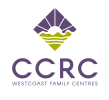WCCRC Administration & Management for Child Care: Instructor-Guided Course
Thanks to valuable funding Westcoast is able to offer this 40-hour course for only $100!
In partnership with The Province of British Columbia and The Government of Canada, Westcoast Family Centres established another phase of the Administration and Management for Child Care program from early childhood educators and other child care professionals in BC. This phase will operate from April 1, 2024 to March 31, 2027. Through this funding we are excited to be able to offer this training for $100, reduced from $600. Free access to the AMCC Knowledge Base is available to everyone.
This Administration & Management for Child Care (AMCC) training program provides a comprehensive overview of all aspects of administration and leadership development. It’s ideal for experienced leaders who are looking to improve or expand on their program’s operations, as well as ECE students who want the most current learnings related to child care in BC.
This course has 30 hours of instructor-led sessions via Zoom on the dates specified, and it requires an additional 10 hours of self-paced learning via online video modules, lessons, and quizzes through this Hub. Learners are credited with 40 Pro-D hours which could be used to renew an ECE certificate to practice. Learners must attend all sessions via Zoom and complete a course survey to receive a certificate.
Stay tuned for more upcoming dates through to April 2027.
Contact us at amcc@westcoastfamily.org for more information.
$100.00
Course Policies
By registering for a WCCRC course, participants declare they have read, understood and agree with all of WCCRC’s policies.






